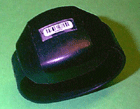Pima County Jail Upgrades Security With Texas Instruments 13.56 MHz RFID Tags, Cards and Readers
18 September, 2003
category: Biometrics, Contactless, Corporate, Education
Innovative Facility Applies New Inmate Identification and Officer Access Control System
NEW ORLEANS, LA (September 15, 2003) – The Pima County Jail in Tucson, Arizona today announced it has adopted 13.56 MHz tags, cards and readers from Texas Instruments Radio Frequency Identification (TI-RFid™) Systems for prisoner identification and officer access as part of a comprehensive security upgrade and the addition of 147,000 square-feet of new building space. Up to 1,600 prisoners will be identified and monitored daily via wristbands embedded with a TI-RFid smart label, and more than 300 prison officers will use TI-RFid-based cards to gain access to restricted areas in the facility.
Upon entering the Pima County Jail, inmates are fastened with an RFID Smart Band® developed by Precision Dynamics Corporation of San Fernando, Calif. The inmate’s name, identification number and security level is stored on the RFID smart label in the wristband. As they are moved throughout the facility, inmates present their wristbands to TI-RFid wall plate readers, automatically identifying each prisoner and capturing the date and time the person entered or exited a particular area of the facility. One hundred twenty-four vicinity readers will be implemented at all doorway entrances to the jail as well as at various entry points inside, including the medical unit, visitation and programs areas.
The systems integrator on the project, TrenTech, a division of Norment Security Group of Montgomery, Ala., is installing a host of security systems including RFID, CCTV, audio, duress, locking devices and locking controls. This new security system will integrate with the officer access control portion of the upgrade.
Officers will carry TI-RFid access control cards, imprinted with a photo and containing security clearance information, to enter restricted areas of the facility such as the parking lots and the medical area. Using TI-RFid cards integrated with the SAFEnet software and field hardware solution from MDI Systems of Rancho Cucamonga, Calif., a division of American Building Controls of Lewisville, Texas, TrenTech has developed an automated access control solution. The MDI SAFEnet system verifies prison officer identity and releases necessary locks without interrupting the higher level operations of command center staff. To enter a restricted area using the old system, the officer contacted the jail’s command center by radio to request entry and was verified via CCTV by personnel in the command center.
The MDI SAFEnet system will also be integrated with the county’s inmate records database for a seamless flow of information that can be viewed and updated by jail staff and police officers with secured computer access privileges. When an inmate presents a valid wristband to a TI-RFid vicinity reader, the MDI system will log information that will be linked to the county’s inmate management software for inmate monitoring.
To replace Pima County’s paper-based system of prisoner identification and processing, the architecture firm on the project, DMJM of Colorado Springs, Colo., evaluated several access control solutions including magnetic stripe cards, barcodes, biometrics as well as other RFID solutions. The company recommended a 13.56 MHz RFID solution from Texas Instruments because of its speed of processing, read range, the contactless nature of the technology and its ability to be read without line-of-sight, so the prisoner requires less handling by staff. By implementing an officer access control system using the same technology, DMJM was able to recommend a fully integrated and cohesive system.
TI’s 13.56 MHz smart labels and cards are ISO 15693 compliant and provide a unique, factory-programmed ID, which cannot be duplicated, ensuring that no two people are misidentified. Up to 50 Smart Band wristbands per second can be simultaneously identified by an RFID reader.
“Officers must be able to move inmates, quickly and effectively, throughout the facility,” said David Campbell, security engineer, DMJM. “The TI-RFid solution gives officers the ability to move several inmates through the read field at once without handling them. Inmates wave their wrist near the reader and walk through the doorway.”
The new security technologies help facilitate the jail’s contemporary approach to building design and the use of a direct supervision mode of inmate management. Corrections staff controls behavior of the jail population through a proactive concept. Unlike more traditional reactive containment utilizing bars, security glass, and other barriers, officers are assigned to work inside each 8-person pod in physical proximity to the inmates.
“This RFID-based access control solution is the first of its kind for inmate identification and monitoring. It fits in well with our innovative approach to inmate monitoring,” said Captain John Alese of the Pima County Jail. “We expect it to be very helpful and efficient in logging inmate activities and in moving them through the facility more quickly and easily, while also answering a critical need for more accurate and effortless record-keeping.”
About Texas Instruments RFid Systems
Texas Instruments Radio Frequency Identification (TI-RFid™) Systems is an industry leader in radio frequency identification (RFID) technology and the world’s largest integrated manufacturer of RFID tags, smart labels and reader systems. With more than 200 million tags manufactured, TI-RFid technology is used in a broad range of applications worldwide including access control, automotive, document tracking, livestock, product authentication, retail, sports timing, supply chain, ticketing and wireless payment. For more information, contact TI-RFid at 1-888-937-6536 (North America) or +1 214-567-4364 (International), or visit the company’s Web site at www.ti-rfid.com.
Texas Instruments Incorporated provides innovative DSP and analog technologies to meet our customers’ real world signal processing requirements. In addition to Semiconductor, the company’s businesses include Sensors & Controls, and Educational & Productivity Solutions. TI is headquartered in Dallas, Texas and has manufacturing, design or sales operations in more than 25 countries. Texas Instruments is traded on the New York Stock Exchange under the symbol TXN. More information is located on the World Wide Web at www.ti.com.



